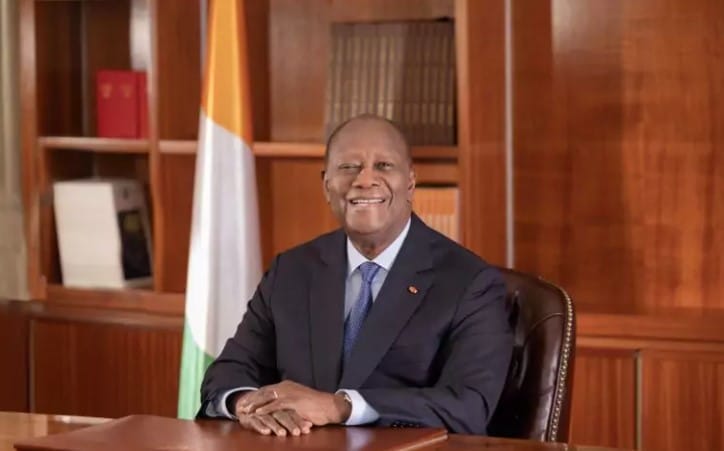Côte d’Ivoire is facing a wave of political tension following President Alassane Ouattara’s formal announcement that he will seek a fourth term in office, despite being 83 years old and already having served three terms. The decision has reignited debates around constitutional legality, political exclusion, and economic stability in West Africa’s leading economy.
According to the Financial Times, Ouattara’s ruling RHDP party argues that a 2016 constitutional revision effectively reset presidential term limits, making him eligible to run again in the upcoming October 2025 election. The president’s main rivals, former Credit Suisse CEO Tidjane Thiam, former president Laurent Gbagbo, and ex-parliament speaker Guillaume Soro, have been barred from contesting on various legal grounds, drawing condemnation from opposition coalitions and international observers.
ALSO READ: Ghana Advances Toward Energy Independence with Cape Three Points Oil and Gas Discovery
Protests have broken out in Abidjan and other urban centres, with demonstrators accusing the administration of silencing dissent and undermining democratic processes. According to AP, several gatherings were dispersed by security forces, while protest organisers and political activists have been arrested under public order laws.
The unrest comes at a critical time for Côte d’Ivoire’s economy. The country has averaged over 6 percent annual GDP growth for the past decade, driven by public infrastructure projects, cocoa exports, and financial sector expansion. According to Africanews, the government recently raised $1.75 billion through a Eurobond issuance, reflecting continued investor confidence despite political friction.
However, business leaders and economists are expressing concern over the potential long-term implications of the current crisis. According to The Voice of Africa, the exclusion of credible opposition figures from the electoral process and the growing crackdown on civil society could destabilise investor sentiment and delay capital inflows into key sectors, including energy, ports, and agribusiness.
ALSO READ: Top 5 Visionary Founders Transforming the Event Planning Industry
Political analysts warn that the situation mirrors a broader regional pattern, where aging incumbents attempt to extend their rule amid weakening democratic institutions. According to Citié Web, fears of post-election unrest could directly impact operations in the cocoa supply chain, as well as future negotiations with foreign partners involved in Abidjan’s port expansion and national broadband rollout.
Despite these risks, the government maintains that political continuity is essential for sustaining economic progress. Officials close to the RHDP cite Ouattara’s track record in maintaining macroeconomic stability, attracting foreign direct investment, and advancing large-scale infrastructure development as reasons for preserving the current leadership.
As Côte d’Ivoire prepares for elections, the business environment remains watchful. Financial institutions, development partners, and multinationals operating in the country are closely monitoring developments, seeking clarity on the integrity of the electoral process and the potential for disruption across commercial hubs.
According to Moody’s, Côte d’Ivoire’s credit rating remains stable for now, but prolonged instability could alter risk premiums and dampen regional investor appetite. The weeks ahead will be crucial for determining whether the country can maintain its growth trajectory or risk eroding the gains of the past decade under the weight of political unrest.

